- Understanding the Basics of Homeschooling Preschoolers
- Creating a Structured Environment for Homeschooling Preschoolers
- What are some effective teaching strategies for homeschooling preschoolers?
- Using Online Resources for Homeschooling Preschoolers
- Preparing Your Preschooler for the Transition to Kindergarten
- Balancing Homeschooling and Play Time for Preschoolers
- Nurturing Creativity and Curiosity in Homeschooling Preschoolers
- How can Homeschooling Benefit Your Preschooler in the Long Run?
Embarking on the journey of parenthood comes with dreams of providing our little ones with the best possible start in life – a joyful blend of learning, growth, and endless curiosity. What if we told you that homeschooling your preschooler could be the key to unlocking this magical combination? Welcome to a world where education meets excitement, every day is a canvas for creativity, and the path to discovery is paved with the expertise of Great Homeschool Conventions.
- Homeschooling preschoolers turn education into an exciting adventure where learning is fun and foundational.
- Uncover practical strategies to overcome common homeschooling hurdles, ensuring a smooth and rewarding experience for both parent and child.
- Homeschooling sets the stage for a lasting love for learning, providing your child with robust skills for a successful academic journey.
Join us on this blog as we dive into the heart of preschool homeschooling, weaving together the threads of overcoming challenges, creating a dynamic learning environment, and setting essential learning objectives. And guiding us through this captivating exploration is Great Homeschool Conventions – your partner in transforming education into an adventure.
Understanding the Basics of Homeschooling Preschoolers
Laying a solid educational foundation for future development, homeschooling preschoolers allows tailored education to meet individual needs. Preschool teachers can design customized activities based on learning style. Understanding state laws is crucial for legal homeschooling. Additionally, this time is perfect for instilling good social and life skills in young learners, giving them a head start before transitioning to kindergarten.
The Importance of Homeschooling for Preschoolers
Homeschooling preschool-age children allows for more flexibility, fostering independence. Age-appropriate activities in the homeschool preschool curriculum build a solid foundation for future learning for young children. Additionally, it provides time for enriching field trips and enhancing learning experiences. The tailored approach to education ensures that young learners develop crucial skills at their own pace, preparing them for a head start in their educational journey. Homeschooling for preschoolers is of utmost importance.
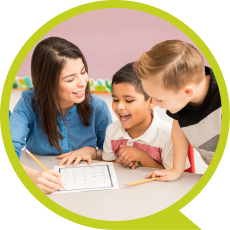
Overcoming the Challenges of Homeschooling Preschoolers
Finding a suitable homeschool schedule requires patience and perseverance. The personalized approach to education allows adaptation of lesson plans, focusing on gross and fine motor skills. Homeschooling offers flexibility, enabling tailored education to meet a child’s needs. This provision of age-appropriate activities fosters independence and instills social skills, laying a solid foundation for future learning. Creating a home learning space, whether a dedicated school room or just a designated area for studying and storing supplies, is also vital for homeschooling preschoolers.
Creating a Structured Environment for Homeschooling Preschoolers
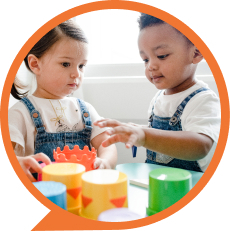
Ensuring a structured routine is key in homeschooling preschoolers. A dedicated homeschool room is essential, engaging them in age-appropriate activities. A tailored curriculum emphasizes necessary preschool skills, incorporating board games for learning. Implementing a structured environment provides familiarity and comfort, aiding in effective learning for toddlers.
Homeschooling your preschooler can be a rewarding experience, fostering a love for learning and setting them on a solid educational path. Here's how to turn your home into a nurturing learning space:
Crafting a Perfect Schedule:
Know your goals: Define your objectives for the year, focusing on literacy, numeracy, and social skills.
Plan your week: Allocate time for subjects like ABCs, counting, art, music, and playtime. Leave room for flexibility and impromptu activities.
Embrace routine: Schedule consistent learning times throughout the day, building a predictable and comforting rhythm.
Integrate fun: Incorporate field trips, playgroups, and outdoor activities to break up the day and bring learning to life.
Creating a Learning Haven:
Choose your space: Dedicate a well-lit area as your homeschooling zone with minimal distractions.
Organize for success: Stock shelves with books, toys, and learning materials—label shelves to encourage independence.
Cozy corner: Create a comfy reading nook with cushions and blankets for storytime.
Display with pride: Hang artwork, charts, and alphabets on the walls to inspire curiosity and celebrate achievements.
Stimulating Early Learning:
Playful learning: Make learning fun! Use songs, games, and hands-on activities to introduce concepts like numbers, colors, and shapes.
Storytime Magic: Read aloud regularly, encouraging interaction and fostering a love for language.
Sing along to Music and movement to develop rhythm, coordination, and vocabulary. Clap, dance, and sing together!
Active exploration: Encourage outdoor play, walks in nature, and sensory experiences to develop motor skills and curiosity.
Celebrate the journey: Track progress with charts and stickers. Praise effort and enthusiasm to build confidence and a positive learning attitude.
Remember, your role is to guide and nurture, not pressure. Adjust your approach based on your child's interests and pace. Be patient, embrace joy, and enjoy the incredible journey of watching your little learner blossom!
This guide provides actionable steps to create a fun and productive homeschooling environment for your preschooler. Remember, this is just a starting point. Feel free to personalize it and make it your own!
What are some effective teaching strategies for homeschooling preschoolers?
Some effective teaching strategies for homeschooling preschoolers include incorporating hands-on activities, using educational games and toys, creating a structured routine, providing ample opportunities for exploration and sensory play, and tailoring lessons to the child's interests and education style.
Incorporating Play in the Learning Process
Nurturing creativity and social skills through play is essential for preschool learners. Integrating play-based activities into the homeschool preschool curriculum enhances fine motor and social skills. The approach promotes hands-on experiences, fostering a love for learning in young learners. Preschool teachers recognize the benefits of play in early education, acknowledging its role in shaping well-rounded individuals.
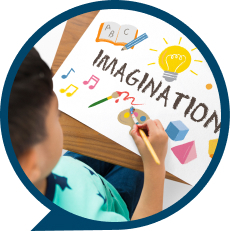
Role of Play in Skill Development
Engaging in various play activities like coloring and building enhances preschoolers' fine motor skills. Children foster social skills through play by interacting and cooperating with their peers. Moreover, play aids cognitive development, improving problem-solving and decision-making abilities. Pretend play also nurtures creativity and imagination in young learners, while active play contributes to developing gross motor skills and physical coordination. For homeschooling high achievers, exploring advanced methods and enrichment activities tailored to their strengths is crucial. For instance, if your child is a visual learner, incorporating visual aids and charts can be beneficial.
Fun and Educational Activities for Preschoolers:
Engaging preschoolers in sensory activities enhances their exploration and comprehension skills. Introducing alphabet games promotes literacy and vocabulary development, while field trips to places like the zoo encourage curiosity and love for learning. Incorporating board games fosters critical thinking, and age-appropriate preschool activities focus on developing life and social skills. These activities, guided by preschool teachers, create a head start for toddlers as they become enthusiastic learners.
Using Online Resources for Homeschooling Preschoolers

Incorporating interactive educational websites can create a stimulating homeschool environment for toddlers and preschoolers. These digital resources offer flexibility, allowing young learners to engage at their own pace. Using technology, preschool teachers can maintain interest and engagement through age-appropriate lesson plans. This integration of Head Start tools in homeschooling schedules ensures a holistic education experience for early learners, introducing and reinforcing essential skills in a fun and engaging manner.
Online learning tools can be a valuable resource for homeschooling preschoolers, offering engaging activities, diverse content, and convenient access. However, ensuring a balanced and beneficial experience requires careful selection and mindful usage. Here's how to navigate online learning:
Unlocking the Benefits:
Cater to Diverse Learners: Explore websites and apps that cater to visual, auditory, and kinesthetic education styles.
Interactive Experiences: Choose platforms with age-appropriate games, quizzes, and simulations to keep your child engaged.
Exposure to New Content: Find resources supplementing your curriculum with new topics, songs, and stories.
Minding the Limitations:
Screen Time Balance: Limit screen time and integrate online activities with non-digital play, outdoor time, and social interactions.
Adult Supervision: Choose platforms with parental controls and stay active in your child's online education journey.
Technology Dependence: Don't rely solely on online tools. Prioritize hands-on activities and real-world exploration.
Making the Most of Online Resources:
Structured Lesson Plans: Utilize websites with a preschool-focused curriculum that aligns with your goals.
Motor Skill Development: Explore educational apps to enhance hand-eye coordination and basic motor skills.
Subject-Specific Learning: Choose platforms offering activities across various subjects like language, math, and science.
Fine Motor Skills Focus: Find online resources like digital drawing and tracing apps to strengthen early writing skills.
Reinforcement and Review: Use online tools to revisit and deepen your understanding of concepts learned at home.
Remember:
Quality over Quantity: Choose well-curated and educational resources over flashy but low-quality content.
Make it Interactive: Engage with your child during online activities, asking questions and discussing what they learn.
Balance is Key: Remember the power of traditional learning methods - books, puzzles, and playtime are equally important.
Preparing Your Preschooler for the Transition to Kindergarten
Familiarizing preschoolers with kindergarten routines is crucial for a seamless transition. Encouraging self-expression can boost confidence in kindergarten. Emphasizing social skills prepares preschoolers for interactions in kindergarten. Introducing kindergarten concepts eases the transition, and promoting independence establishes a strong foundation for success. Preschool teachers play a vital role in preparing learners for head start in kindergarten.
Skills Required for a Smooth Transition to Kindergarten
Encouraging preschoolers to practice routine tasks fosters self-help skills for kindergarten. Developing listening skills is crucial for following instructions in kindergarten. Building vocabulary and comprehension supports preschoolers in kindergarten. Activities promoting coordination and gross motor skills prepare preschoolers for kindergarten. Fostering a love for learning and curiosity equips preschoolers for kindergarten education. Preschool teachers play a vital role in nurturing these essential skills in young learners.
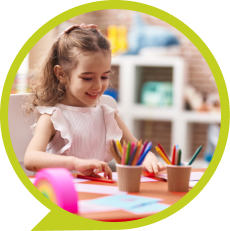
Role of Parents in Preparing Preschoolers for Kindergarten
Parents play a crucial role in establishing a consistent routine to prepare preschoolers for kindergarten. Encouraging social skill development through interactions and playtime is essential for kindergarten readiness. Playful routines, social connections, and a sprinkle of independence - that's the secret sauce to kindergarten readiness! Let preschoolers explore, learn, and build confidence through fun; they'll be ready to blossom in kindergarten.
Balancing Homeschooling and Play Time for Preschoolers:
Incorporating play and social activities into the structured homeschooling schedule is essential for preschoolers. The homeschool curriculum should prioritize play-based learning, promoting gross motor skills through outdoor activities. Monitoring screen time ensures a healthy balance with playtime, while imaginative and creative play contributes to holistic development. By integrating play and learning, preschoolers benefit from a well-rounded approach to education, fostering their growth as young learners.
Importance of Maintaining a Balance
Maintaining a balance between structured learning and play activities is crucial for preschoolers' overall development and well-being. This balanced approach supports their social skills, ensuring holistic growth and development. A healthy mix of homeschooling activities and play promotes physical and mental well-being. Creating a daily routine for structured learning and free play is essential for preschool-age children.
Strategies for Balancing Homeschooling and Play Time

When developing a daily routine for preschoolers include educational activities within playtime to facilitate learning and exploration. Establish a flexible schedule encompassing homeschooling and play, allowing for a balanced and holistic approach to early childhood education. Use board games and interactive tasks to enhance motor skills and encourage social engagement while planning outdoor excursions to provide hands-on learning experiences. Finally, integrate practical life lessons, such as cooking and gardening, into playtime to promote skill development and well-rounded growth.
Nurturing Creativity and Curiosity in Homeschooling Preschoolers
Homeschooling unleashes preschoolers' inner artists! Hands-on activities like art, music, and open-ended play spark creativity, curiosity, and a love for learning. Age-graded lesson plans build confidence and essential skills, setting the stage for a successful educational head start. It's playtime with a purpose, nurturing, well-rounded learners ready to explore the world!
Spark Preschool Genius!
Playtime gets creative: Homeschooling lets you unleash your little one's inner artist! Art, music, and open-ended play fuel imagination, build reading and writing skills and spark a lifelong love of learning. Choose age-graded lesson plans to keep it fun and challenging.

Curiosity takes flight: Homeschooling is a playground for discovery! By encouraging exploration and play, you're nurturing those precious "why?" moments that ignite curiosity and set the stage for a love of learning. Watch their understanding blossom as they grasp new concepts and conquer the alphabet!
How can Homeschooling Benefit Your Preschooler in the Long Run?
Homeschooling offers numerous benefits for preschoolers, setting the stage for long-term success. Homeschooling provides a solid foundation by fostering a love for learning from a young age and tailoring education to their needs. Additionally, it allows preschoolers to develop social skills in a familiar environment and receive individual attention to build a strong vocabulary and enhance comprehension skills. The good news is these tips and tricks help you get started.
Conclusion
Homeschooling preschoolers provides a unique opportunity to create a tailored and enriching learning experience for your child. By understanding the basics of homeschooling and creating a structured environment, you can ensure your child develops essential skills and is well-prepared for kindergarten. Incorporating play into the learning process allows for a fun and interactive approach to education. Online resources can enhance the learning experience, but balancing homeschooling and playtime is essential. As parents, your involvement and support are crucial in creating a supportive learning environment and nurturing your child's creativity and curiosity. Starting homeschooling today can have long-lasting benefits for your preschooler, setting them up for success in the future. If you have any questions or need further guidance, please get in touch with us.
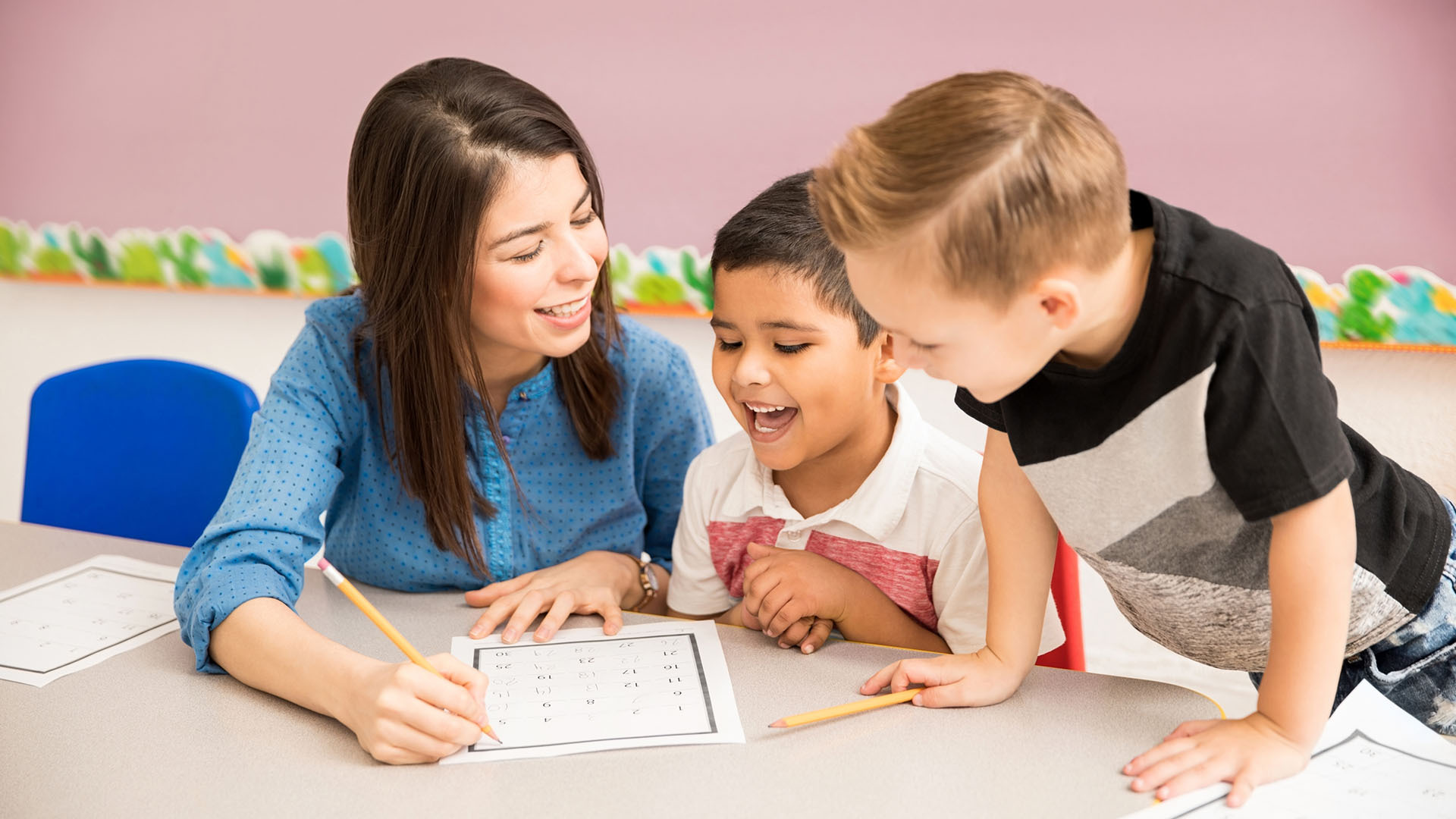
 Resources
Resources
 Curriculum
Curriculum
 Workshop Sessions
Workshop Sessions

